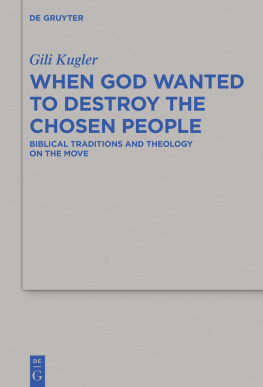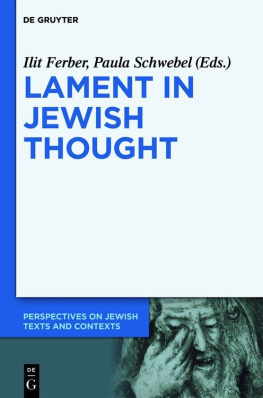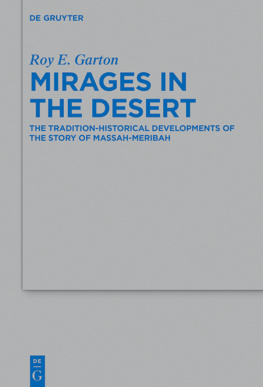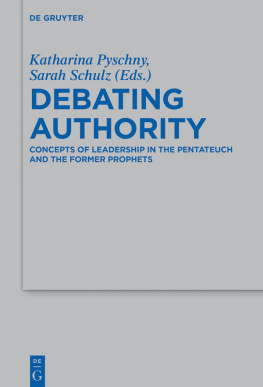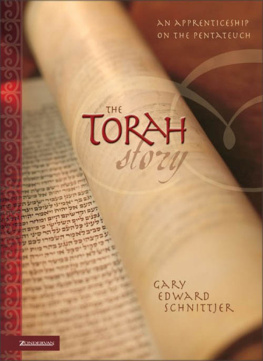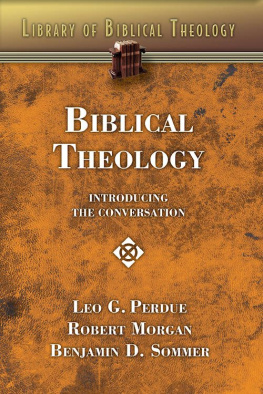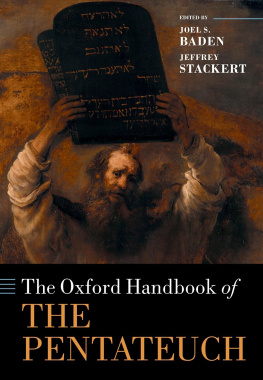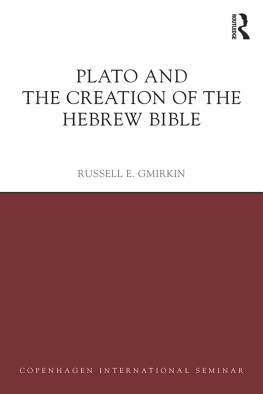Contents
Guide

Gili Kugler
When God Wanted to Destroy the Chosen People
Beihefte zur Zeitschrift
fr die alttestamentliche
Wissenschaft

Edited by
John Barton, Reinhard G. Kratz, Nathan MacDonald,
Carol A. Newsom, and Markus Witte
Volume 515
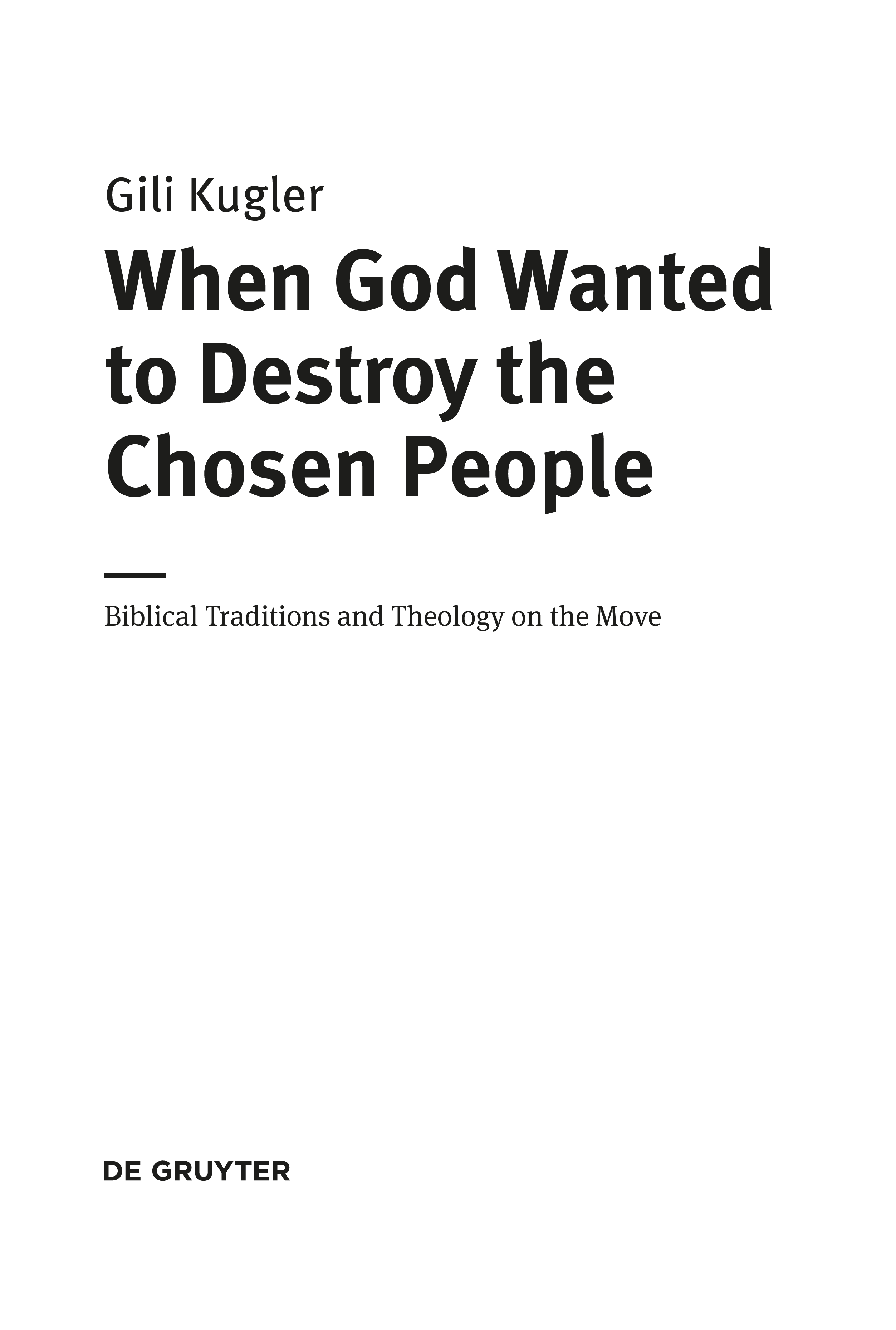
ISBN 978-3-11-060582-2
e-ISBN (PDF) 978-3-11-060990-5
e-ISBN (EPUB) 978-3-11-060950-9
ISSN 0934-2575
Library of Congress Control Number: 2019930906
Bibliographic information published by the Deutsche Nationalbibliothek
The Deutsche Nationalbibliothek lists this publication in the Deutsche Nationalbibliografie;
detailed bibliografic data are available on the Internet at http://dnb.dnb.de
2019 Walter de Gruyter GmbH, Berlin/Boston
www.degruyter.com

,
To my parents, Ruth and Aharon Kugler
Acknowledgements
This book first emerged at the National Library in Jerusalem, and was completed at a university office in the southern hemisphere in Sydney. As in the ancient world, a transition of location, culture, politics, and language does not put to an end, and sometimes further accelerates, preoccupations with questions of identity in and affiliation to the broader society. Often, this engagement is shadowed by doubts about continuity and uncertainty, stemming from a recognition of the temporary quality of human nature and the fragility of national being.
While the survival of a community in the ancient world and in the present is not always guaranteed, various actions by the communitys own individuals may have calmed emerging existential fears. In a similar way, epistemological challenges may be transcended through the contribution of individuals who help in mitigating difficulties swarming beneath certainty. The research presented in this book has been blessed with the help of such surrounding individuals.
My partner in life, Oren Thaler, has often alerted me to blind spots and helped me navigate intersections along the way. Our children, Omri, Tamara and Amos, who were born and dragged into this journey, patiently (mostly) and inspirationally accompanied it, crawling, hopping and long-distance running.
Many others accompanied me throughout the stages of research and writing. My thanks to my doctoral supervisor, Shimon Gesundheit, who instilled in me the appreciation of wording and articulation as an access to any great ideas. My beloved friends and teachers at the Revivim Program at the Hebrew University have exposed me to the colourful dimensions of textual ideologies and interests, beliefs and realpolitik , narrators and authors, traditions and criticism: Dodani Orstav, Ruth Kara-Ivanov Kaniel, Tzahi Weiss, Sari Shimborsky, Itamar Tas, Matan Barak, Roni Magidov, Havi Levine, Ayala Paz and others. My gratitude to Richie Cohen, for constant support and good advice at critical crossroads in the academic maze.
My thanks also to my companions from the National Library in Jerusalem and the University benches, who showed interest in the research, read, responded, and advised: David Frankel, Marc Brettler, Dalit Rom-Shiloni, Eli Assis, Yisca Zimran, Naama Cohen-Hanegbi, Noam Mizrachi, Jonathan Rubin, Misgav Har-Peled. My great gratitude to Jonathan Ben-Dov and Itamar Kislev for providing profound and careful comments on the book in its early incarnation.
My new academic base, the University of Sydney, took me in for my first steps as a researcher and lecturer. The students enthusiasm and engagement in class and after hours have helped me further develop and articulate the books arguments. My close colleagues at the Department have supported me in pursuing the writing: Avril Alba, Michael Abrahams-Sprod, Yona Gilead, and particularly Ian Young, who is always willing to hold the ongoing rush to have a glimpse at an academic work in process. Rachelle Gilmour, my Aussie friend, has read, commented and advised.
I thank the School of Languages and Cultures at the University of Sydney for providing academic and financial support, on a regular basis and at a critical stage of producing the book. I thank the Editorial Board of the BZAW series for assessing, accepting and preparing the Manuscript for publication.
Last, dear and kind, Lucy Davey, a friend and a teacher, who has accompanied the book in every step of its English version: read, corrected and spotted any misplaced letter in English, Hebrew or Greek. This book could not have happened without her.
The book is dedicated to my parents, Ruth and Aharon Kugler, who taught me, in their gentle and non-direct way, to challenge the obvious.
Gili Kugler
Sydney, November 2018
1 Introduction
1.1 To annihilate a chosen nation
The fear of extermination has accompanied the Jewish nation from its beginning. The statement in the medieval Passover Haggadah that in each and every generation they rise up against us to destroy us has been resonating in the Jewish consciousness for centuries. This book focuses on the earliest recorded expressions of the collective fear of national destruction, embedded in the theology of the Hebrew Bible.
Biblical stories, prophecies and historiography record crises that have threatened the existence of the people of Israel since their beginning. Whether these distresses come from political or natural circumstances, they are manifestly considered as expressions of Gods will or of the legal and retributional relationship with him. This theodicial perception reflects the ancients search for coherence and logic in life while rejecting arbitrary explanations for difficulties and sufferings. Together with that, this view reveals the belief in divine providence in the world, especially among those who are considered Gods followers.
A radical expression of the retributional paradigm is found in the stories about Gods plan to bring an end to the existence of Israel. The scenario of annihilating a whole nation is not impossible in the eyes of the biblical narrators, who ascribe to God a reputation as a destroyer of nations and communities. The book of Genesis describes Gods extermination of humankind almost in its entirety only a few generations after creating them (Genesis 68), and the total destruction of the sinful inhabitants of two cities soon after the rehabilitation of humanity (Genesis 19). The book of Joshua describes Gods assistance in defeating and destroying the former nations of Canaan (Joshua 611), and the book of Samuel presents the slaughter of the entire people of Amalek in compliance with divine instruction (1 Samuel 15). The people of Israel manage to avoid this destiny but not to escape its threat. In the first period of their life as a nation, after surviving Pharaohs attempts to destroy them, yet prior to the beginning of their own campaign to destroy other nations, the Israelites find themselves in danger of annihilation by their own God.
The image of God as a threat to the people stands in dialectic relationship with the belief of the people as Gods protg, manifested throughout all traditions in the Pentateuch (Torah). The Priestly text in the Pentateuch presents Gods connection with the people as a statement by God promising an everlasting covenant, to be God to you and to your offspring after you (Gen 17:7). Non-Priestly material in the Pentateuch defines the people as Gods treasured possession out of all the peoples and a priestly kingdom and a holy nation (Exod 19:56). The Deuteronomic source identifies Gods choice of the people with his strong affection for them:

